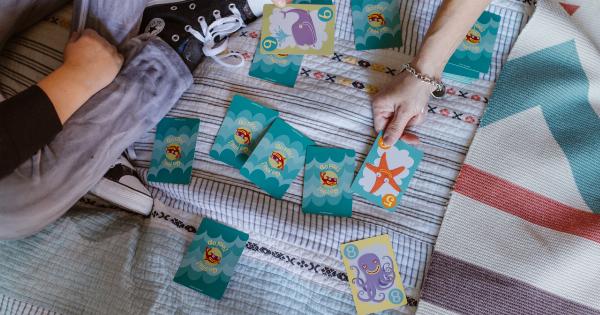Life is full of expectations and societal norms that often make us feel guilty or ashamed for indulging in certain activities. However, it’s important to remember that self-care and personal happiness should always take precedence.
Here are 10 perfectly normal things that you shouldn’t feel bad for doing:.
1. Taking a Break
In our fast-paced world, there’s a constant pressure to keep going without pause. However, it’s crucial to take regular breaks to rest and recharge.
Whether it’s a short nap, a day off from work, or a relaxing vacation, allowing yourself time to rejuvenate is essential for your physical and mental well-being.
2. Prioritizing Yourself
Putting yourself first is not a selfish act but rather an act of self-preservation. It’s important to prioritize your own needs and desires without feeling guilty.
Taking care of yourself emotionally, mentally, and physically is necessary to maintain a healthy and fulfilling life.
3. Saying “No”
We often feel compelled to say “yes” to every request or favor asked of us. However, it’s perfectly acceptable to decline when you’re overwhelmed or simply not interested.
Learning to set boundaries and say “no” without guilt is a valuable skill that enhances self-confidence and ensures a balanced lifestyle.
4. Treating Yourself
Indulging in small luxuries or treats from time to time is a natural way of rewarding yourself.
Whether it’s a spa day, buying a favorite snack, or purchasing something you’ve been longing for, treating yourself is an important way of acknowledging your efforts and celebrating your accomplishments.
5. Making Mistakes
Mistakes are an inevitable part of life, and beating yourself up for them only hinders personal growth. Embracing mistakes as valuable lessons fosters resilience and helps develop a growth mindset.
Remember, it’s through failures and missteps that we learn, evolve, and become better versions of ourselves.
6. Asking for Help
Asking for help is not a sign of weakness but an acknowledgment of your humanity. Seeking support when you’re overwhelmed, confused, or struggling is a brave and responsible action.
It allows you to learn from others’ expertise, strengthens relationships, and builds a supportive network around you.
7. Having Alone Time
Social interactions are essential, but so is spending time alone. Taking moments for solitude can have immense benefits, including increased self-awareness, creativity, and clarity of thoughts.
Carving out alone time allows for introspection, self-reflection, and a chance to recharge in your own company.
8. Following Your Passion
Pursuing your passions and dreams might feel frivolous or unrealistic, but it’s an integral part of leading a fulfilling life. Don’t let societal expectations or practicalities hold you back from exploring what truly makes you happy.
Following your passion injects zest into your life and gives you a sense of purpose and fulfillment.
9. Taking Mental Health Days
Mental health is as important as physical health. Taking a mental health day when you’re feeling overwhelmed, stressed, or emotionally drained is necessary.
Taking time to care for your mental well-being can help prevent burnout and increase your overall productivity and happiness.
10. Being Yourself
Perhaps the most important thing you should never feel bad about is being yourself. Embracing your uniqueness, quirks, and individuality is a true act of self-love. Don’t mold yourself into someone you think others want you to be.
Your authentic self is valuable and deserving of love and acceptance.





























